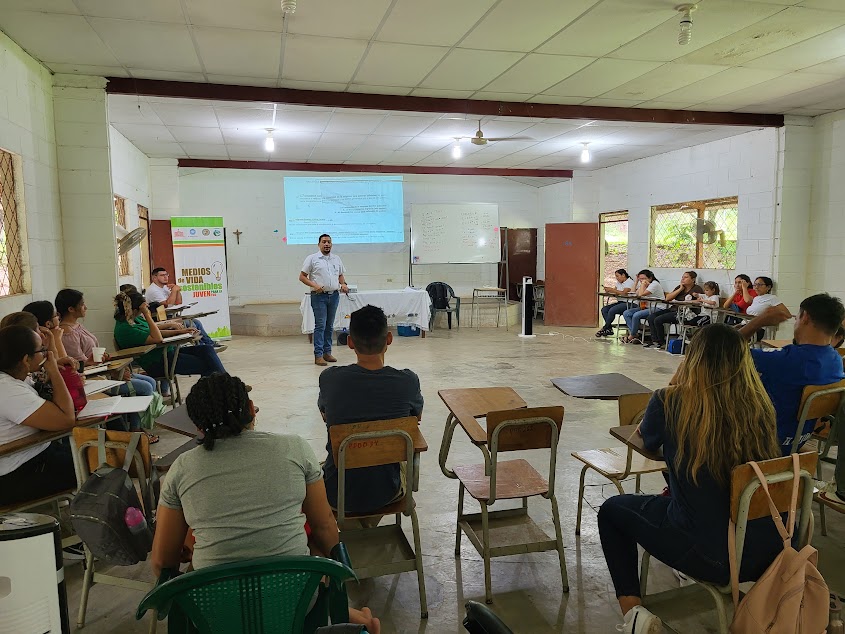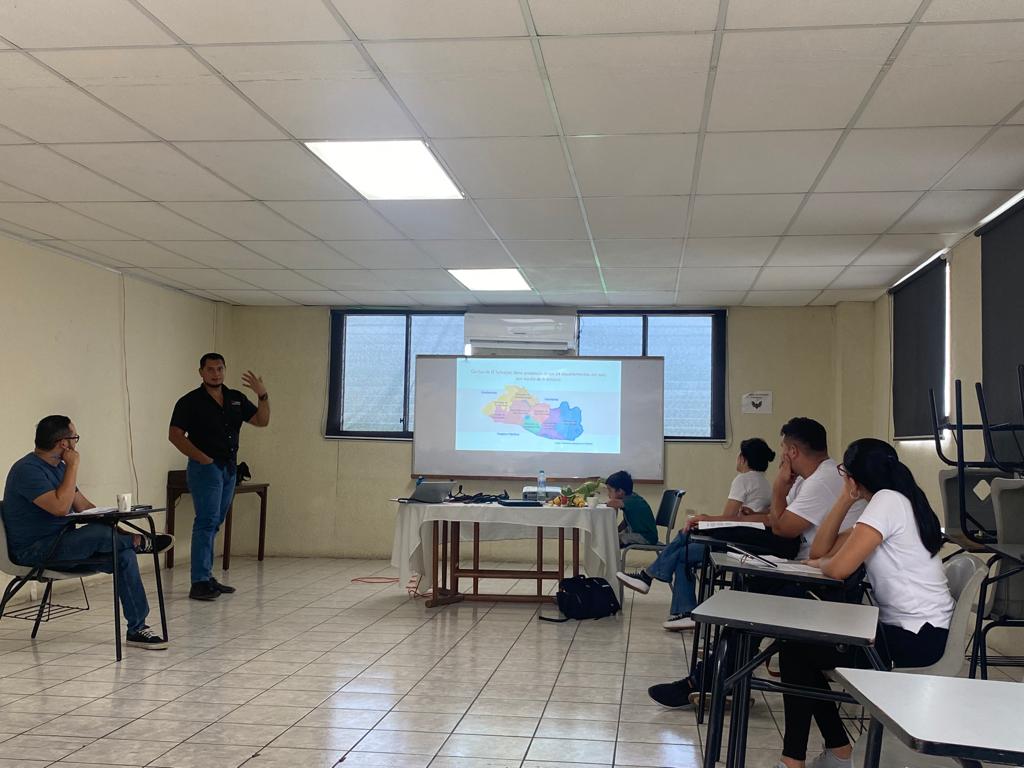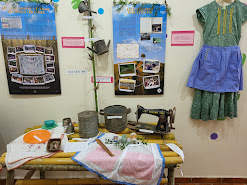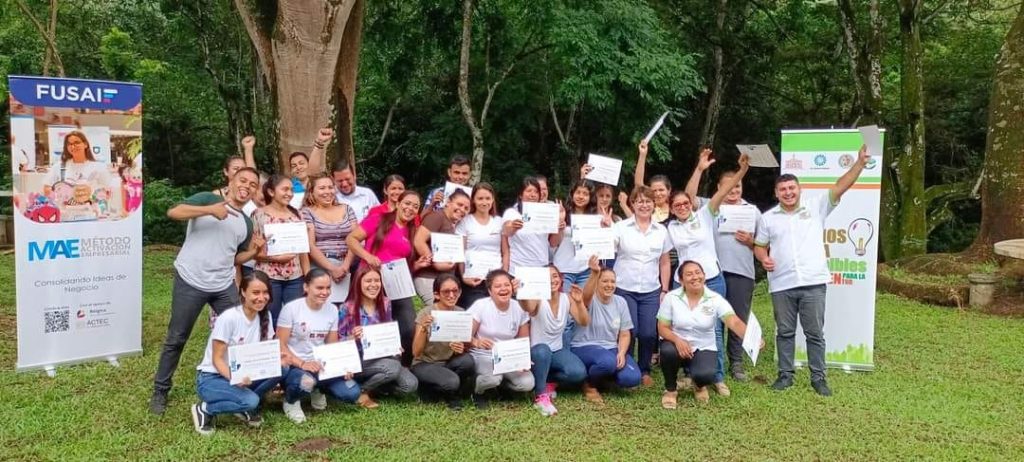Juan Carlos Jimenez 2023 Field Report
Upon winning the Salvadorian presidential elections in 2019, President Nayib Bukele, referring to the break from the right-wing ARENA and left wing FMLN bipartisanship, said that “El Salvador has turned the postwar page and now we can begin to look to the future” (Forbes Centroamérica, 2019). My Dissertation interrogates this concept of the “post-post war” period, and considers what the post-war has meant for young people were born in the late 1980s, 1990s, and early 2000s, often referred to as the “post war generation” (Chacón Serrano, 2020; Silber, 2022), and who have lived through post-war reconstruction and find themselves navigating through the hardships of economic crisis, political polarization and authoritarianism, social violence, and mass migration.

My research project takes place in the department of Chalatenango, a historically agrarian region that witnessed severe conflict during the 1980s civil war. I will be working with young adults, aged 18-35, to understand their livelihood trajectories and emotional experiences in the context of mass youth migration. My research will take place in five municipalities, all of whom are on the same highway stretching for the departmental head, Chalatenango City, to the border of El Salvador and Honduras. These municipalities are Guarjila, Guancora, San Jose Las Flores, Nueva Trinidad, and Arcatao, areas that were abandoned during the civil war, and repopulated at the end of the 1980s and beginnings of the 1990s (Sprenkels, 2018). These municipalities contain an estimated total population of around 8,4884 residents based on the 2007 Salvadorian census (BCR, 2022; Martinez, 2023).
Mass migration from El Salvador began in the 1980s, mainly by refugees to the US, Canada, Europe, and Australia, and continued into the 1990s with the influx of economic refugees, both sanctioned and unsanctioned, and family reunifications (Garcia, 2006; Landolt, 2007). Since the 1990s, an export-based production model in agriculture and natural resource industries, and low wage labour markets, depleted the abilities of many families to reproduce their livelihoods and catalyzed migration from rural and urban settings (Bibler Coutin, 2018; North, 2021). The remittance economy was born out of this neoliberal economic model, where Salvadorians move to economic centers and send flimsy remittances back to their households to maintain basic social reproduction (Gammage, 2006). In the last decade, stressors that result in migration, such as economic insecurity, gang violence, political instability, and climate change, result in an increase in mass migration, that has received high visibility with the influx of migrant caravans to the United States (Anastario et al., 2015; Cruz, 2020; Markham, 2019) With this project, I will be exploring the ‘agrarian exit’ in Chalatenango, and the emotional outcomes of youth migration on young adults who stay-in-place. The ‘agrarian exit’ refers to the generational shift in rural livelihood practices away from smallholder agriculture to other livelihoods, including migration to urban centers, as young farmers are increasingly turning away from agriculture due to the fragility of agrarian based livelihoods (White, 2012, 2020). Migration may be framed the result of the weak positioning of smallholder farmers in an agricultural economy dominated by elites, where labour migration and remittances function as a means of mitigating economic and environmental stressors and fundamentally result in a ‘slow displacement’ of peasant farmers from rural areas (Carte et al., 2019; Radel et al., 2018).
There is a wealth of literature emerging in human geography and agrarian studies on the impacts of migration on left-behind populations, impacting the wellbeing of children and grandparents that stay, and restructuring wealth, land tenure, power relations, and communal governance structures, amongst other impacts (Barney, 2012; Garni, 2013; Jingzhong & Lu, 2011; Ye et al., 2013). My research will contextualize youth migration from Chalatenango within the context of neoliberal post-war reconstruction and a mass agrarian exit in agriculture and explore how young people navigate livelihood decision making in a context of uneven development that erode livelihood capacities in rural areas.
Field Work in Chalatenango: Building towards Community-Based Research
During the months of July and August 2023, I lived in Chalatenango, in the municipality of Arcatao, with my wife and son, with the intention to conduct preliminary field work and build a community-based research (CBR) approach to my Dissertation. My goal was to co-create research questions and objectives in a way that closely aligned with the interests and needs of community organizations, and plan future field work with rural actors in the five municipalities. CBR entails working closely with community organizations in conducting mutually beneficial research outcomes and contribute to social justice and citizen participation and action (Caine & Mill, 2016). In this spirit, this field work was oriented in creating relationships and building the bases for a community-based, participatory research project in 2024.

My main activity in Chalatenango was to have community consultations with organizations to formulate my research questions and objectives. I did this in the following steps; first, I hosted a community consultation with community actors on youth migration and young adult livelihoods. Second, I met with organizations individually to discuss their work and plan possible research collaborations with them. Third, I participated in the different programming and activities with young adults. I took part in a youth entrepreneurship training programming between July and August, as well as a music workshop series with you leaders in the same months. My family and I also attended various public events with young people, including a youth entrepreneurship festival in Arcatao, and events commemorating historic moments in Chalatenango’s history during the war. Fourth, I dedicated to building genuine friendships with youth social actors and activists in Chalatenango, inviting them over to my apartment in Chalatenango for dinners and other social gatherings, as a means of building this genuine dialogue that is cherished in community-based research (Leeuw et al., 2012)

The work of the organizations I met with has been oriented towards supporting young adults to curve migration, supporting youth entrepreneurship, youth associations, offering leadership training, and scholarships, amongst other programs. During our meetings, community actors noted the importance of knowing the results of their community work with young adults and understanding the multivariate impacts of youth migration on rural actors, especially young people, that stay-in-place. As an outcome of my field work, I have formulated the following research questions and objectives to coincide with the needs identified by collaborators. First: what are the impacts of rural youth migration on young adults who stay-in-place, specifically their life trajectories and on their emotional wellbeing? Second: how do young adults in Chalatenango who stay-in-place engage in community organizing and in the programming of community organizations, and what are the outcomes of these initiatives on the life trajectories and emotional wellbeing of participants? Third: how are young adults contributing to collective identity and historic memory around the civil war and post-war period, especially through their engagement with community organizing and development efforts?
I will be continuing my relationship with community organizations in the coming months, sending a summary of my Dissertation Research Proposal, and conducting key informant interviews with these organizations and other actors between January and April 2024. I plan on being in Chalatenango between June and August 2024 to conduct oral history interviews and photovoice workshops with young adults and youth activists in Chalatenango, to understand the everyday experiences building a livelihood in the context of an agrarian exit and trans local realities. Organizational representatives will assist me in recruitment, provide me with research materials and grey literature, engage in key informant interviews and focus groups, and will provide feedback on preliminary results. As a future outcome of my work, I hope to be able to create a graphic report that incorporates photovoice, community art pieces, and comics as a means of sharing my research findings.

The Conference of Latin American Geography Field Study Award was used in the research for the following costs. First, for two months of rent in Arcatao, valued at $550 USD per month, for a total of $1,100 USD (utilities, internet, furniture, and kitchen included). Second, $230 USD directed towards gasoline over a two-month period. Third, $170 USD in equipment and housing materials, including a computer monitor and a wardrobe, which are being stored with colleagues in El Salvador and will be used again when I am back in the field.
Please see the full report here.


















